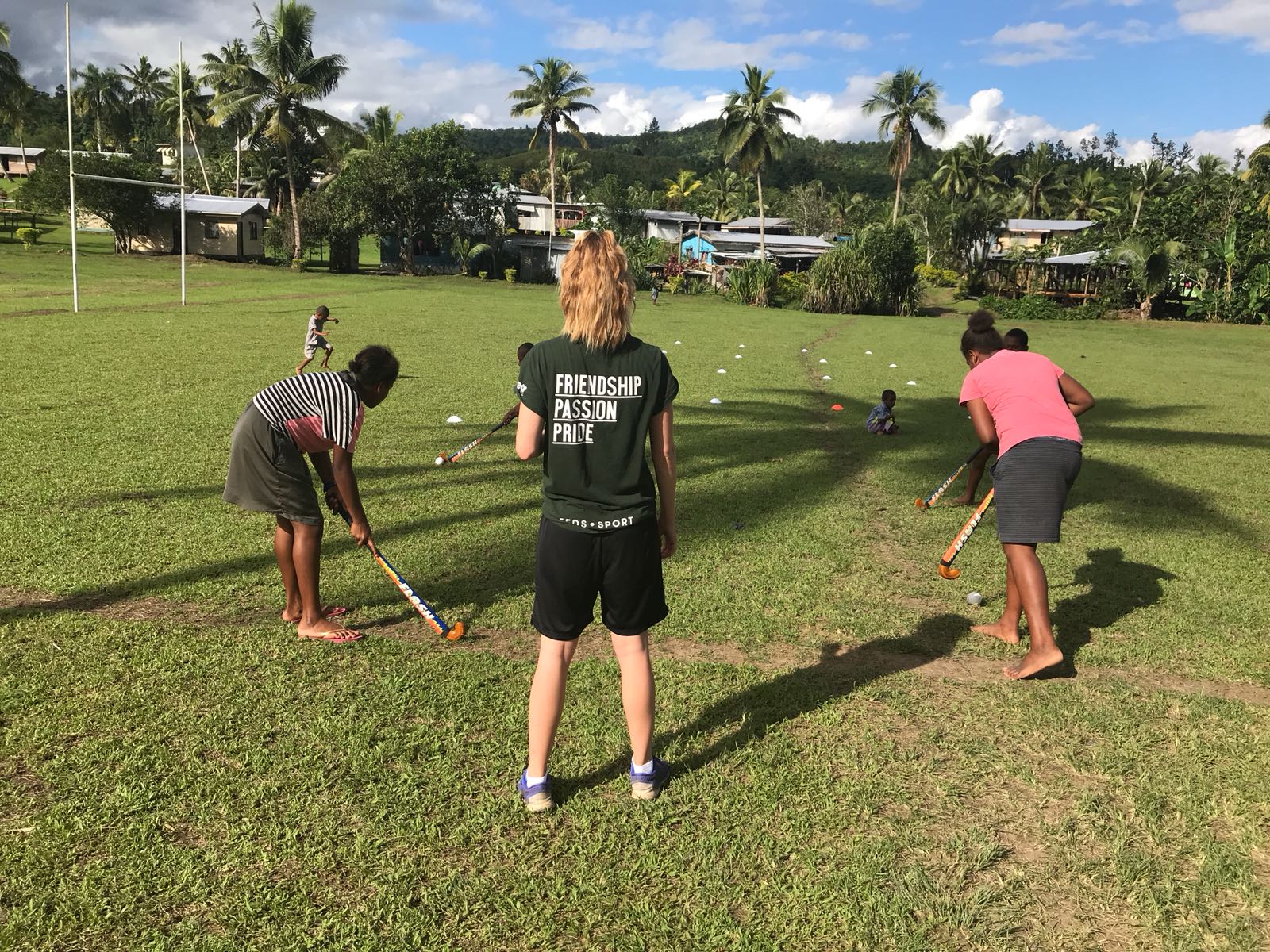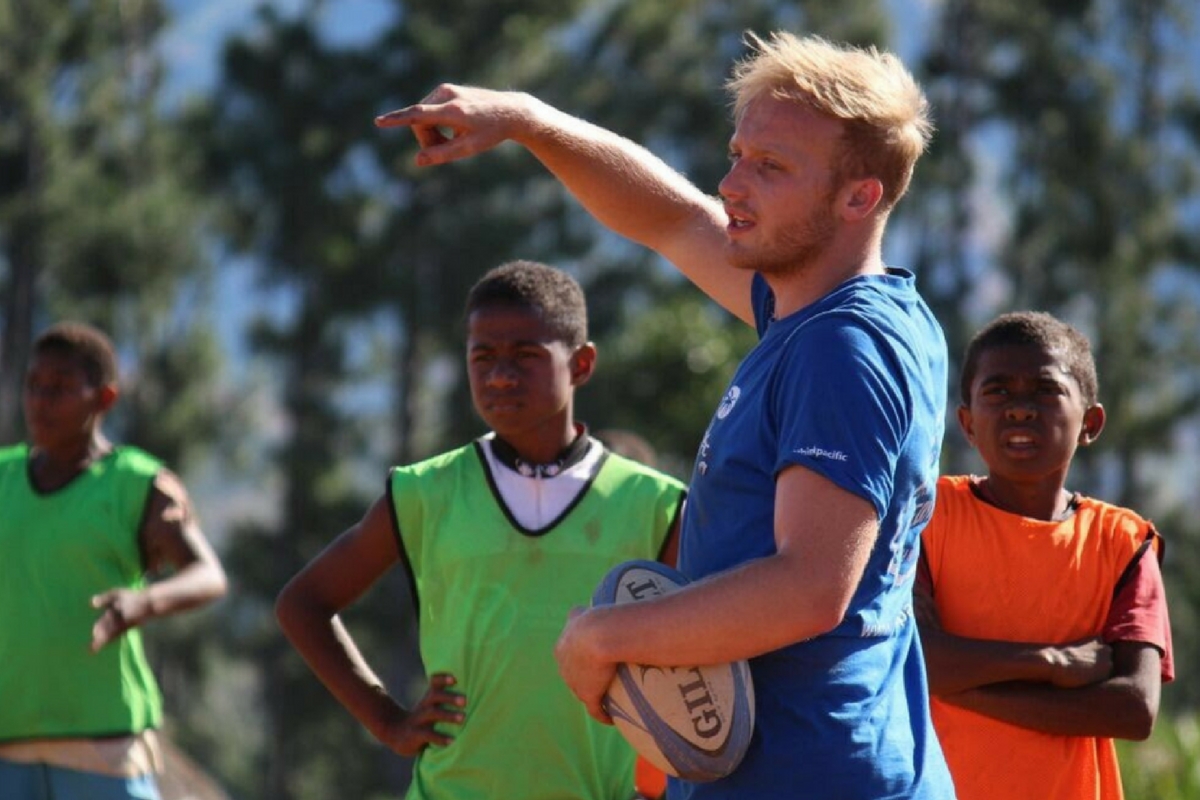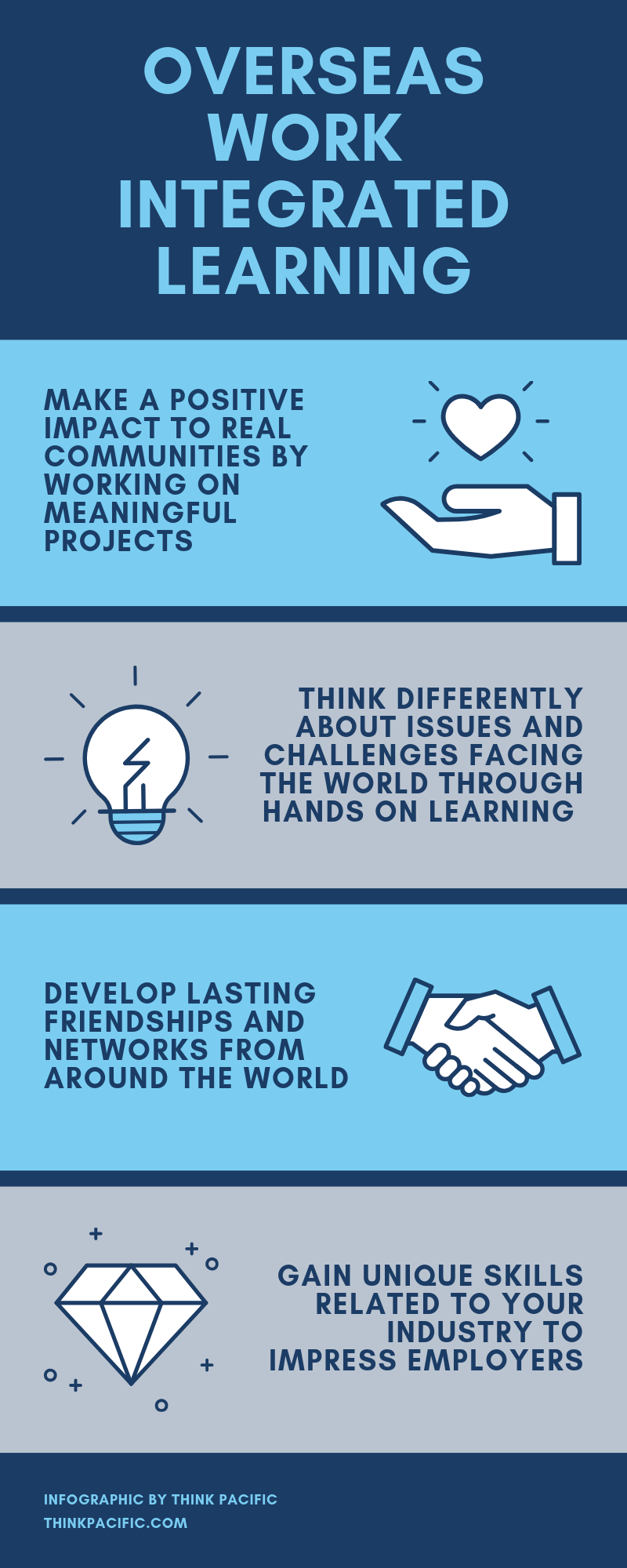
Employability is arguably one of the most important outcomes of higher education for students.
Landing a dream job after years of hard work is an immense moment for anyone.
So, how can students increase their “employability” and follow their passion to land a dream job?
One such answer could be the concept of work integrated learning.
Although the underlying attributes of employability are vast, some universities are using work integrated learning to help propel their students to the top of recruiter’s wish lists. Work integrated learning programmes are proving highly successful and helping students uncover their true potential.
Here at Think Pacific, we are passionate and proud to support work integrated learning opportunities. If you’re looking to offer work integrated learning for your students or set up faculty led projects overseas, simply get in touch with us today and learn more about our approach, our team and our values.
What is Work Integrated Learning?
Work Integrated Learning (or sometimes simply referred to as WIL) offers students the chance to gain real-world experience by completing an internship or project that counts to their degree/course.
This differs from other related opportunities whereby the experience may not actually count to the student’s course.
Work integrated learning acknowledges that education should take place both in and out of a lecture theatre. It can take many forms and is often most effective when tailored specifically to student requirements and aims, but all WIL projects offer similar key outcomes for students.
One of the main key outcomes of work integrated learning is that it helps provide “real world” problem solving and experiences to further support academic theory. This provides a plethora of transferable skills. Work integrated learning can also tackle real issues and empower students by valuing their input and efforts to create tangible impacts within a certain industry.
Work integrated learning helps universities, employers and NGOs work closer by fostering relationships that equip students with the skills and knowledge required to succeed in competitive job markets. Furthermore, it helps foster relationships between students, universities and employers, where recent graduates can have the impact they truly want to have, instead of just joining a workforce for the sake of it.

Benefits of Work Integrated Learning
WIL offers students an array of benefits, including:
- Using academic theory in the real world
- Developing self-awareness
- Working out of their comfort zone
- Developing awareness of global challenges and industry issues
- Gaining leadership, teamwork and communication skills
- Developing practical skills
- Transitioning between school and the job market
- Gaining new friendships, networks and social circles
- Understanding job opportunities and the job market
- Improving overall employability
As well as all the benefits of work integrated learning, participating in WIL projects overseas, adds yet another layer of positive outcomes for students.
The infographic below highlights 4 fundamental benefits of overseas work integrated learning.

Work Integrated Learning and Think Pacific
If you’re looking to offer work integrated learning for your students or set up faculty led overseas projects, simply get in touch with us today and learn more about the possibility of joining Think Pacific on a bespoke learning experience to the Fiji Islands, tailored specifically to what your students need.
We pride ourselves on offering projects that empower students and give them unrivalled hands on experience in rural Fiji. By leveraging our government and local partnerships, we give students a unique opportunity to tackle real issues and challenges on an international scale. From engineering graduates to sports science students, Fiji offers a fantastic setting for a variety of work integrated learning projects and we’re perfectly positioned to help students make the most of this.



